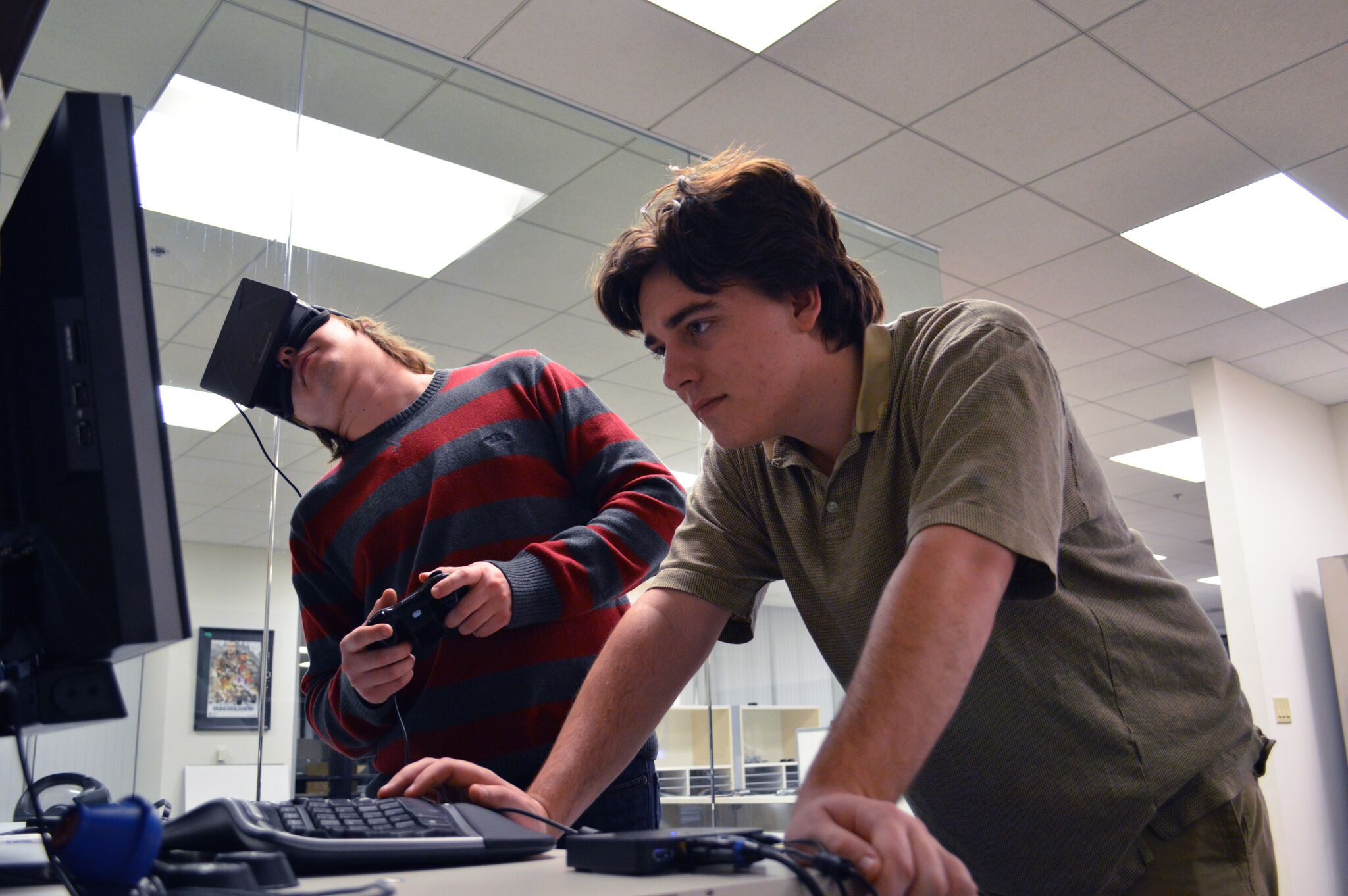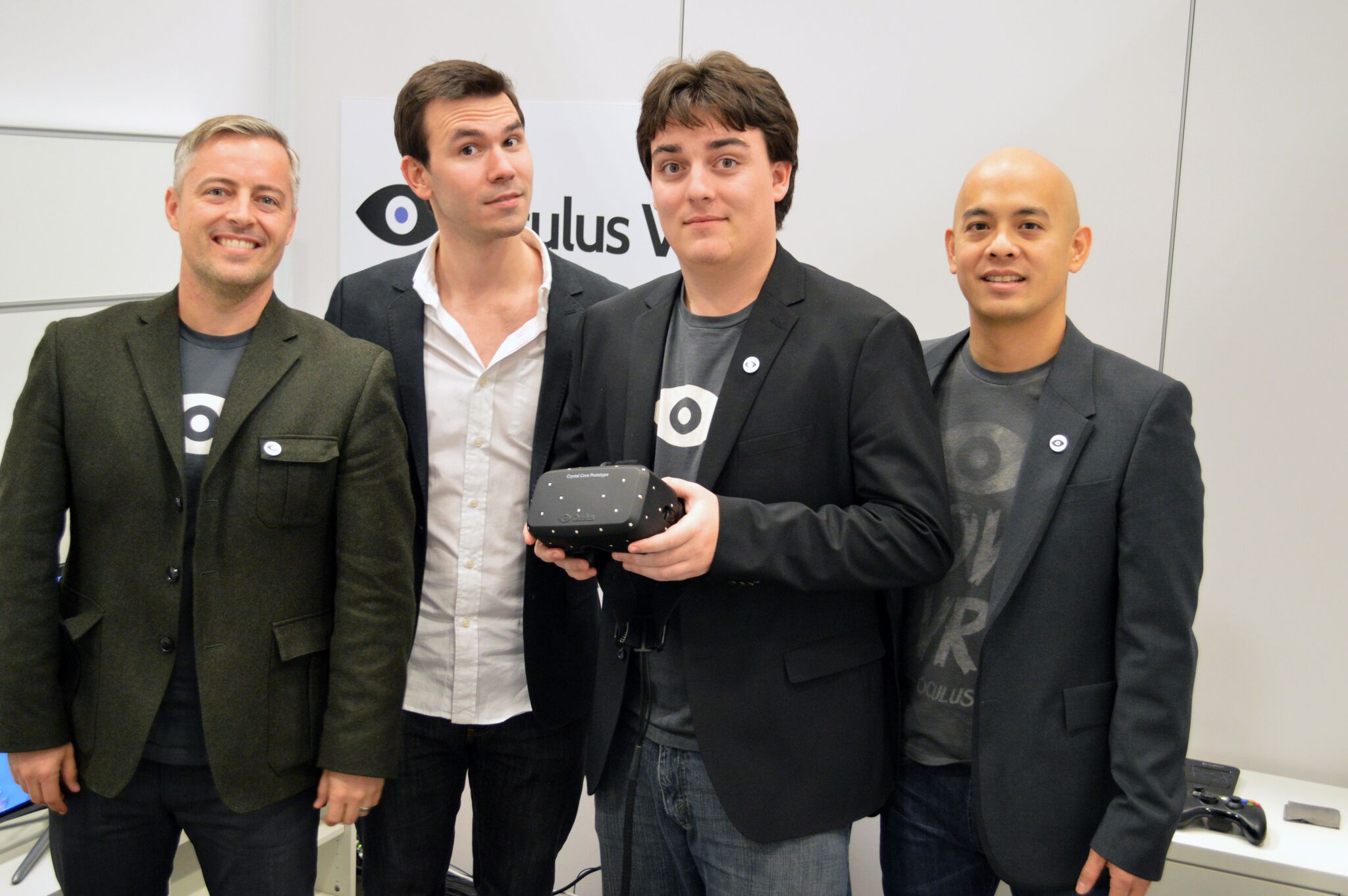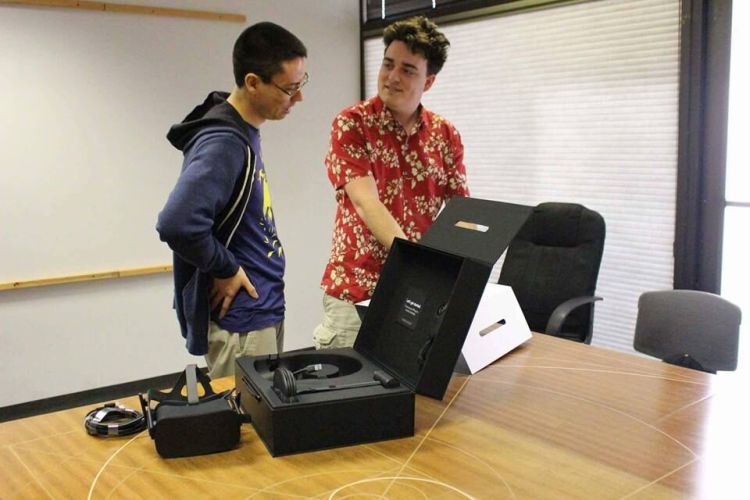GamesBeat: I also wonder whether they were just mad about the lawsuit, what Palmer might have done that messed them up on that. But that seems like a false trail as well.
Harris: That was one of my initial instincts as well, given the timing of the firing. But it was always very significant to me that they told him to pack up his office and took away his admin privileges the day they rested the case, not the day of the verdict. This wasn’t a reaction to the verdict.
Palmer, when I suggested that was a potential motivation–and by the way, Facebook never told me this. They told me a lot of things, but they never suggested that that was what it was given the timing. But when I suggested to Palmer that certain people think that, he said it was ridiculous. During the two years or however many years of legal work, he was never told by Facebook that he’d done anything wrong. I said, “Well, maybe they never told you that because it was in their best interest not to tell you that.” He said, “Yeah, I guess you’re right.” But going over some of the other facts–all of the other charges against him were later reversed. The timing of his firing–I just think that’s a red herring.
GamesBeat: It did sound like they kept him around longer than they wanted, just to help him defend the company during the trial.
Harris: Exactly.

Above: A young Palmer Luckey
GamesBeat: But they wanted him out before that.
Harris: Right. Then you have to look at–basically, Facebook decided–this is speculation on my part. But you have to assume they’d decided that they wanted to fire him pretty soon after what happened, since they didn’t put him back in the office. So why did they keep him around? One plausible explanation is that, because it’s illegal to fire someone for their political beliefs, they wanted to have some intervening time.
The other is that they did want him around for the trial, because he’d agreed to let Facebook defend him, and Facebook’s priority was to–I remember talking to Palmer about this. I said, “If you were not at the company, would you have given different testimony?” He said, “No, it’s not about lying. It’s about strategy.” He was referring to the Facebook attorneys. They focused on Facebook not losing the more important issues, like theft of trade secrets. Because there was a limited amount of time, they might not have had certain witnesses who would have defended Palmer, or even Brendan. So it was really about strategy.
Anyway, it seems really unlikely. The story I’ve heard, the explanation of why Palmer got fired, is that there was no longer a role for him at the company. I find that incredibly hard to believe. I feel that way even more so after he’s put out certain things on his blog, like how to monetize the audio in Oculus Rift. He’s not a useless person. [laughs] He also could have been an asset to appeal to that other half of the country, but that’s another conversation.
GamesBeat: Before I forget, one other thread of thinking I had was around whether or not people came to the conclusion that ZeniMax was right, that Palmer was just a kid, a fool who didn’t know anything, and Carmack was the smart guy who made it all happen. Maybe Facebook believed that and eventually concluded that he didn’t belong. But to me that sounds incorrect in that it assumes that Palmer was technically inept. It sounded, from what you documented in the book, that he really did have a lot of these ideas that they ran with. They relied on him for technical expertise — things like what you do with your hands in VR, the Oculus Touch, that sort of thing.
Harris: Correct. The way that people at Oculus — the people who fired him, the high-ranking Oculus and Facebook talking about Palmer — is exactly the same way as ZeniMax talks about him, as if he was almost this doofus who was in the right place at the right time. He just rode John Carmack’s coattails. It sounds reasonable. But then you look at the facts, and also, like you said, he’s still putting stuff on his blog, the hacks you can do. Then you hear him talk for 20 minutes nonstop about VR and you realize this guy is brilliant. He’s not someone who lucked out. He was obviously very lucky. But not in the way they like to tell it.
GamesBeat: Just from talking to Palmer myself, I know he’s an intelligent guy. It was interesting to see ZeniMax try to paint him that way. I then think, maybe if they believed that he was not technically that valuable, then why did they keep him around? Maybe he kept them around because he told a good story or served as a good spokesperson, but once he was a tainted spokesperson, and the public maybe unfairly vilified him, he was no longer useful.
Harris: I think what you describe there is a large part of their perspective. I think they’d pass a polygraph with that perspective. That’s how people there think and do think is what happened. It’s understandable.
The two things that come to mind with that, and neither of them are refutations–one, I think that if that were the case, then they owe him the opportunity to explain himself to colleagues, and to not be vilified, if public perception is what cost him his job. The other thing is, the way the deal was structured gave him most of the money paid out on the back end. I think it was a shitty thing to do, to fire him before all of his options vested. They have the right to do so, but when you make that acquisition deal and you’re told you’re going to be kept around, it’s reasonable to think you’ll be there for the duration.

Above: Oculus leaders. Palmer Luckey holds a Rift in his hands.
GamesBeat: Some people did refer to him as “the Oculus billionaire.” That didn’t seem like it was true based on my calculations.
Harris: Yes, that’s not true.
GamesBeat: It’s off by hundreds of millions. He did fine, but getting painted as a billionaire–was that part of that vilification?
Harris: Yeah. Brendan made at least twice as much as Palmer made in the deal, and the deal was for $3 billion. But it wasn’t like Palmer made $1 billion and Brendan made $2 billion, though. The stock went up, but–it was like 16 percent. It was nowhere near a billion, but it was obviously an enormous amount of money.
GamesBeat: It was good to see that there were some real behind-the-scenes explanations for a lot of things we all saw from the outside. There was one area I was curious about that I didn’t really see an answer for, though, and that was–why did Valve come back with such a vengeance and do Steam VR?
The only thing I could think of was that–some of what I’d heard publicly was that they wanted there to be choice in the market. They wouldn’t have done VR themselves if Oculus had stayed an independent company, but once they were bought by Facebook, Valve saw that as a closed system. Now they needed the equivalent of something like what Android is to iOS.
Harris: This is speculative on my part, and it’s not in the book, but that’s what I’ve heard as well. I was never able to confirm anything from a primary source, anyone who was in the room for these conversations, even if it was people at Valve, so I didn’t feel like I could report that. But that’s a great example of something you think should have been answered in this book, that would have been good to know. It certainly would have been intriguing and exciting to see them building up after they lost Abrash and others.
Everyone who’s currently at Valve declined to speak with me. I really only reported things that I felt certain about. Unfortunately, that’s not in there. But I’d love–if I could go back in time and see anything, that’s one of my top choices. That’s my white whale, to some degree.
GamesBeat: It’s funny to see Valve in that position, because sometimes they get accused these days of being monopolists, right?
Harris: The whole thing is very funny. Early on, when Gabe says that he doesn’t want VR on Steam, because they only have curated high-quality products–obviously their perspective on that has changed, because they chose more of a democratization of content, to the extent that they’ve allowed a lot of content that people find objectionable. But it’s interesting to see how much they’ve changed there.
It’s also interesting–basically everyone from Oculus and Facebook that I spoke to thinks that Valve was the Goliath, because they had this PC monopoly with Steam, and Oculus was the David. And then the people I spoke with from Valve, although there weren’t very many of them, they said, “Facebook has billions and billions of dollars. They’re the Goliath.” It’s interesting that both of them cast themselves as David in this David and Goliath story. They’re both pretty well off. [laughs]

Above: The Oculus Quest sits behind the Touch controllers.
GamesBeat: You did a good job of conveying all of these things happening very quickly without clogging it all up. There’s just this small scene with the Reddit guy, or a small scene with Phil Chen from HTC, but you get the point, that this was an important part of the narrative, even if it’s not something where you have to do the blow-by-blow.
Harris: I appreciate that. Space was an issue. It was a fight to get it to this length. But in cases like Phil Chen, I could have written five more pages about what happened next and his contributions. Maybe someday I’ll get to that. But I did feel like there was enough there. I wanted to at least make clear that this was a significant event that happened, and you could glean enough about what happened to go from that dot to the partnership with HTC and Valve, their meeting in late 2014.

